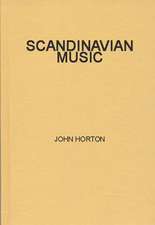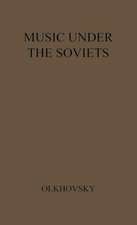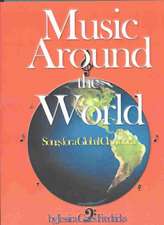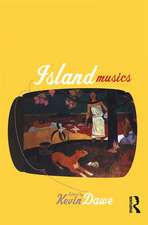The Revolution Will Not Be Televised: Protest Music After Fukushima
Autor Noriko Manabeen Limba Engleză Paperback – 14 ian 2016
| Toate formatele și edițiile | Preț | Express |
|---|---|---|
| Paperback (1) | 268.96 lei 31-37 zile | |
| Oxford University Press – 14 ian 2016 | 268.96 lei 31-37 zile | |
| Hardback (1) | 766.11 lei 31-37 zile | |
| Oxford University Press – 14 ian 2016 | 766.11 lei 31-37 zile |
Preț: 268.96 lei
Preț vechi: 306.50 lei
-12% Nou
Puncte Express: 403
Preț estimativ în valută:
51.47€ • 53.54$ • 42.49£
51.47€ • 53.54$ • 42.49£
Carte tipărită la comandă
Livrare economică 04-10 aprilie
Preluare comenzi: 021 569.72.76
Specificații
ISBN-13: 9780199334698
ISBN-10: 0199334692
Pagini: 454
Dimensiuni: 157 x 236 x 31 mm
Greutate: 0.84 kg
Editura: Oxford University Press
Colecția OUP USA
Locul publicării:New York, United States
ISBN-10: 0199334692
Pagini: 454
Dimensiuni: 157 x 236 x 31 mm
Greutate: 0.84 kg
Editura: Oxford University Press
Colecția OUP USA
Locul publicării:New York, United States
Recenzii
The Revolution Will Not Be Televised serves as a wonderful introduction into Japanese protest music culture for all audiences. Manabe writes in a manner fit for undergraduates, although the length of the book might make it unmanageable for a single semester. Chapter 3, "Musicians in the Antinuclear Movement: Motivations, Roles, and Risks", could best serve as an excerpted introductory piece for use in a classroom. As with many Oxford University Press titles, the monograph is paired with a very useful companion website with active links to many songs, live protest videos, and governmental reports mentioned throughout Manabe's writing.
The Revolution Will Not Be Televised: Protest Music after Fukushima is a musical remembrance of the 3/11 disasters and the social protest that followed. The author offers important historical background, but the wealth of contemporary cultural information and the social analysis make the book very important for the fields of Japanese studies and ehtnomusicology. Cultural creation, musical celebration, and social complexities are explored, albeit in an overarching context of disaster and protest. With a skillful interpretive approach to crtical thought, the detail is fascinating and the analyses (music and social) are intriguing. Manabe has produced an outstanding work in the study of music and protest in Japan.
clearly and engagingly written ... fascinating.
In a creative, interdisciplinary study, Manabe connects spatial theory and musical analysis to a sociological argument about political protest. . . The book and accompanying website, which presents footage from the protests, are wonderful teaching resources, and they will also change how we think about performance and social change. . . This timely book reminds us of the spaces of possibility, community, and hope possible through mobilization, creativity, and music.
The committee was in awe of the scope, depth, and risk-taking of the author's research -- at demonstrations and festivals, and with both indie and major label recordings musicians and producers; and in cyberspace. Her command of policy and its legal implications was as strong as her expert performance ethnography and music analysis. This study teaches us a great deal about the techniques of messaging, and the ways music breaks through the walls of official and unofficial censorship.
In this moment of heightened and anxious scrutiny of cyberspace as a forum for both activism and manipulation, Manabe's book offers a thoughtful ethnographic look at a specific context for music and political action, in a variety of spaces both physical and virtual.
Contrary to widely held stereotypes, Japan has a long and loud history of public protest. As Noriko Manabe shows in her important new book, the massive demonstrations in the wake of the Fukushima nuclear disaster belong to this tradition but also have produced their own distinct soundscape. Her detailed ethnographic and musical analysis of the parts numerous musicians have played in the movement vividly captures the sonic dimensions of this latest chapter from the history of Japanese street democracy.
[Manabe] was able to see the protests from the inside and make a very fine-grained analysis of the role of music in them ... the analysis of the spaces of contention can be extended to other forms of cultural dissent seen in recent protests, both in Japan and around the world.
The Revolution Will Not Be Televised: Protest Music after Fukushima is a musical remembrance of the 3/11 disasters and the social protest that followed. The author offers important historical background, but the wealth of contemporary cultural information and the social analysis make the book very important for the fields of Japanese studies and ehtnomusicology. Cultural creation, musical celebration, and social complexities are explored, albeit in an overarching context of disaster and protest. With a skillful interpretive approach to crtical thought, the detail is fascinating and the analyses (music and social) are intriguing. Manabe has produced an outstanding work in the study of music and protest in Japan.
clearly and engagingly written ... fascinating.
In a creative, interdisciplinary study, Manabe connects spatial theory and musical analysis to a sociological argument about political protest. . . The book and accompanying website, which presents footage from the protests, are wonderful teaching resources, and they will also change how we think about performance and social change. . . This timely book reminds us of the spaces of possibility, community, and hope possible through mobilization, creativity, and music.
The committee was in awe of the scope, depth, and risk-taking of the author's research -- at demonstrations and festivals, and with both indie and major label recordings musicians and producers; and in cyberspace. Her command of policy and its legal implications was as strong as her expert performance ethnography and music analysis. This study teaches us a great deal about the techniques of messaging, and the ways music breaks through the walls of official and unofficial censorship.
In this moment of heightened and anxious scrutiny of cyberspace as a forum for both activism and manipulation, Manabe's book offers a thoughtful ethnographic look at a specific context for music and political action, in a variety of spaces both physical and virtual.
Contrary to widely held stereotypes, Japan has a long and loud history of public protest. As Noriko Manabe shows in her important new book, the massive demonstrations in the wake of the Fukushima nuclear disaster belong to this tradition but also have produced their own distinct soundscape. Her detailed ethnographic and musical analysis of the parts numerous musicians have played in the movement vividly captures the sonic dimensions of this latest chapter from the history of Japanese street democracy.
[Manabe] was able to see the protests from the inside and make a very fine-grained analysis of the role of music in them ... the analysis of the spaces of contention can be extended to other forms of cultural dissent seen in recent protests, both in Japan and around the world.
Notă biografică
Noriko Manabe is Assistant Professor of Music at Princeton University. She has been conducting field research on the Japanese antinuclear movement since 2011 and on Japanese hip-hop, reggae, and EDM scenes since 2005. She was previously a ranked analyst researching the internet, media, and videogame industries at JP Morgan in Tokyo. She holds a PhD in Music from CUNY Graduate Center with concentrations in ethnomusicology and music theory.
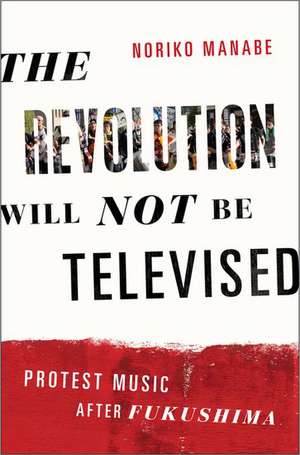

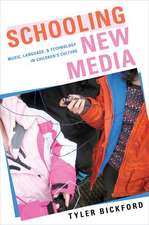




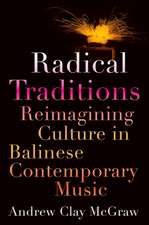


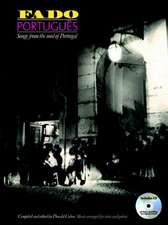
![El Tres Cubano [With Audio CD]: A Collection of His Greatest Hits](https://i4.books-express.ro/bt/9780825633249/el-tres-cubano-with-audio-cd.jpg)
